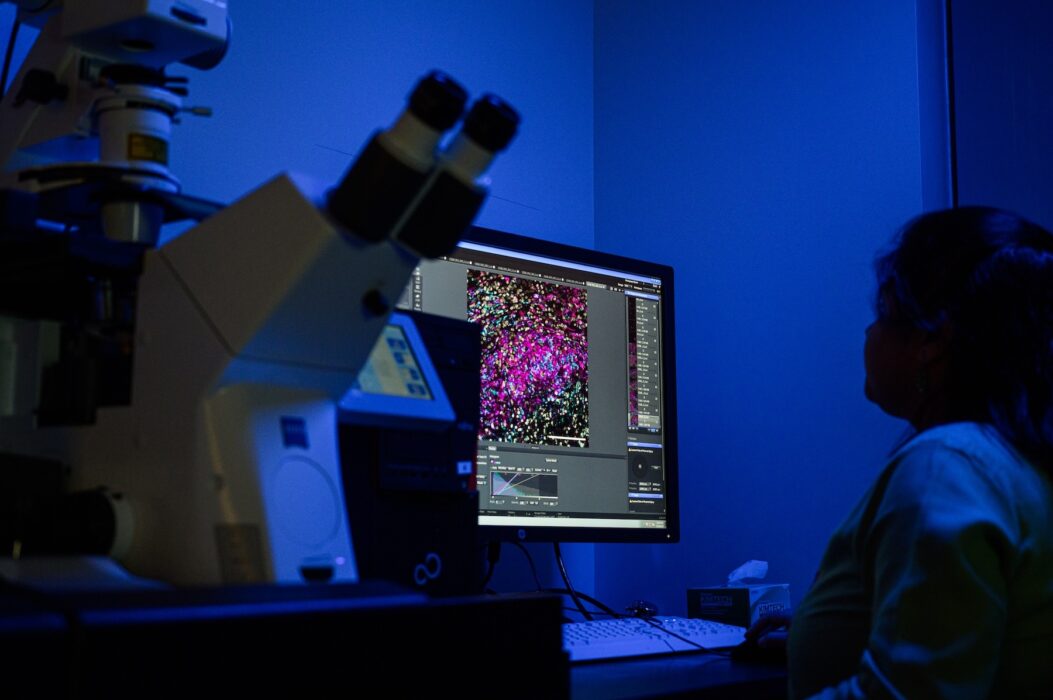This article originally appeared in Texas Monthly

Genesis was a busy, vibrant high school senior when she began feeling abnormally tired. As weeks turned into months, she felt weak and exhausted and was coughing and suffering frequent night sweats. Her doctors were puzzled. One suggested iron supplements, another prescribed antibiotics; neither helped. Genesis chalked her symptoms up to anxiety but knew that it was unusual to be worn out by simple self-care, like washing her hair.
After falling ill on a school field trip, Genesis was rushed to a nearby hospital where doctors suspected pneumonia. After further testing, she was diagnosed with tuberculosis (TB), which came as a shock.
“It blew my mind, because I thought it was just a cold. But that’s the thing with TB: it’s a very sneaky disease,” said Genesis. She began treatment at San Antonio’s Heartland National TB Center, the only free-standing hospital dedicated to TB in the United States.
TB is the number 1 infectious disease killer worldwide. It is responsible for over 1 million deaths and 10 million new infections each year. Most of us assume the disease only affects those in developing countries, but it is not as far from home as we might think. According to the Texas Department of State Health Services, more than 1,000 Texas residents were diagnosed with TB and 50 people lost their lives to the disease in 2022.
Larry Schlesinger, M.D., President and CEO at Texas Biomedical Research Institute, is a physician-scientist who has dedicated his career to the study of the disease.
“TB remains a major global threat to our health – both at home and abroad – and more research is needed to ensure we stay ahead of these threats. It is absolutely a race and at Texas Biomed we strive every day to be prepared to tackle the next disease outbreak,” said Dr. Schlesinger.
Texas Biomed, a world-leading infectious disease research institute based in San Antonio, is no stranger to tackling biological threats. Its researchers have been at the forefront of some of the most advanced preclinical research in the world when it comes to combating infectious diseases, from TB to Ebola, influenza, malaria, HIV and COVID-19. And globally, these threats are on the rise, causing acute and chronic diseases.
“Researchers from around the world come to Texas Biomed for our high containment biosafety laboratories, subject matter experts and wide range of disease models,” said Dr. Schlesinger. “We are actively collaborating with biotech companies, the National Institutes of Health and global health organizations to accelerate the development of diagnostics, treatments and vaccines for infectious diseases. We are customer-focused and dedicated to delivering high-quality results.”
Texas Biomed’s partnerships leverage its advanced research facilities and expertise in conducting science under the safest, best-equipped biocontainment environments, enabling critical preclinical testing and translational research. These facilities undergo regular, rigorous oversight to obtain the highest standards.
“Our researchers use their decades of experience to identify solutions to tough problems,” said Cory Hallam, Ph.D., Executive Vice President of Applied Science and Innovation at Texas Biomed. “We partner with government and industry to quickly translate discoveries made in our labs into approved products to treat people.
“Later this year we expect to announce a new TB vaccine company launching from the Texas Biomed labs. We’re very excited about this tangible demonstration of our capacity for innovation,” said Dr. Hallam.
The Institute offers services including contract research, study design and management, in vitro and in vivo diagnostic, therapeutic and vaccine development and efficacy and safety testing, along with a wide range of research and development capabilities and unique resources.
“Through our partnerships with the finest minds in industry, academia and nonprofits, we are helping to bridge the gap between scientific discovery and real-world medical solutions, allowing Texas Biomed to contribute to public health on a global scale,” said Dr. Schlesinger. “What you’re getting is world class science from the heart of Texas.”
After nearly a year of treatment and recovery, Genesis is healthy again. Her lungs are scarred and she still tires easily, but she graduated from high school and has begun training to become a dental hygienist. She is grateful to the researchers at Texas Biomed for their efforts to find better ways to diagnose and treat TB and other infectious diseases.
“There are more people like us who need you, who need your drive to make this a better world, a healthier world,” Genesis said.